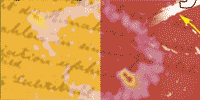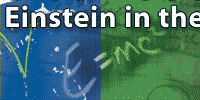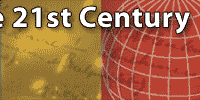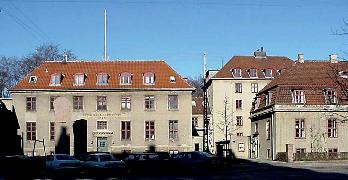|
|
Research at the Niels Bohr
Institute covers the fields of astronomy, physics, geo-
physics and biophysics.
At the Niels
Bohr Institute on Blegdamsvej the main topics are theoretical
physics, experimental high energy physics and nuclear physics, quantum
optics and the physics of non-linear and complex systems.
At the Ørsted Laboratory the main
topics are nanostructures and cluster physics, semiconductors,
theoretical and experimental solid state physics, atomic- and
molecular physics and a project of Mars investigations.
The department of experimental high energy
physics takes part in the experiments ALEPH and ATLAS at CERN and
HERA-B at DESY. The department for High Energy Heavy Ion collisions
takes part in the experiments BRAHMS at RHIC on Long Island and ALICE
at LHC.
The Niels Bohr Institute offers education in astronomy,
physics, geophysics and biophysics.
There are more than 600 students. One can have
a 3-year bachelor education followed by a 2-year candidate degree and a
3-year ph.d education.
|
The
Niels Bohr Institute is engaged in a number of public activities and
public outreach. We are more than happy to invite students from
elementary schols and high schools, as well as small groups or
individuals with a curious mind to visit our institute.
In 2002 we
established a
public outreach office
mainly to work with the press and media. The office also arranges a number of
cultural activities.
Every year in October, the Niels Bohr Institute participates in the
Copenhagen cultural event: The Culture Night (
Kulturnatten
), arranged
by Wonderful Copenhagen. Every year in February, the Institute itself
opens its doors for the public.
|
|
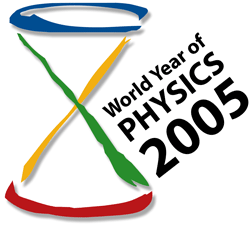
 Christian Helzel
Christian Helzel





